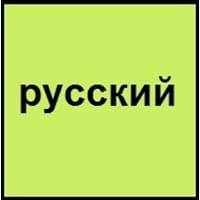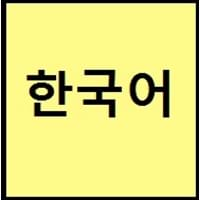Countries
Belarus, Kazakhstan, Kyrgyzstan, Tajikistan
China, Jilin Province, North Korea, South Korea, Yanbian
National Language
Russia
North Korea, South Korea
Second Language
Afganistan
Not spoken in any of the countries
Speaking Continents
Asia, Europe
Asia
Minority Language
Armenia, Azerbaijan, Bulgaria, Estonia, Finland, Georgia, Germany, Greece, Israel, Jordan, Latvia, Lithuania, Mongolia, Poland, Serbia, Tajikistan, Turkey, Turkmenistan, Ukraine, Uzbekistan
Japan, People's Republic of China, Russia, United States of America
Regulated By
Russian Academy, Russian Language Institute of the Russian Academy of Sciences
The National Institute of the Korean Language
Interesting Facts
- In Russian language, the words are not pronounced as they are written.
- In Russian language, there are only 200,000 words out of which only few words are used and due to this many words have more than one meaning.
- Korean has borrowed words from English and Chinese.
- Korean has two counting systems. First, is based on Chinese characters and numbers are similar to Chinese numbers, and second counting system is from words unique to Korea.
Similar To
Ukrainian and Belarusian Languages
Chinese and Japanese languages
Derived From
Proto-Slavic Vocabulary
Not Available
Alphabets in
Russian-Alphabets.jpg#200
Korean-Alphabets.jpg#200
Writing Direction
Left-To-Right, Horizontal
Left-To-Right, Horizontal, Top-To-Bottom
Hello
здравствуйте(zdravstvuyte)
안녕하세요. (annyeonghaseyo.)
Thank You
спасибо(spasibo)
감사합니다 (gamsahabnida)
How Are You?
Как дела? (Kak dela?)
어떻게 지내세요? (eotteohge jinaeseyo?)
Good Night
Спокойной Ночи(Spokoynoy Nochi)
안녕히 주무세요 (annyeonghi jumuseyo)
Good Evening
Добрый Вечер(Dobryy Vecher)
안녕하세요 (annyeonghaseyo.)
Good Afternoon
Добрый День(Dobryy Den')
안녕하십니까 (annyeong hashimnikka)
Good Morning
Доброе Утро(Dobroye Utro)
안녕히 주무셨어요 (An-yŏng-hi ju-mu-shŏ-ssŏ-yo)
Please
пожалуйста(pozhaluysta)
하십시오 (hasibsio)
Sorry
Извините(Izvinite)
죄송합니다 (joesonghabnida)
Bye
до свидания(do svidaniya)
안녕 (annyeong)
I Love You
Я тебя люблю(YA tebya lyublyu)
당신을 사랑합니다 (dangsin-eul salanghabnida)
Excuse Me
извините(izvinite)
실례합니다 (sillyehabnida)
Dialect 1
Doukhobor Russian
Jeju
Where They Speak
Alberta, British Columbia, Canada, Saskatchewan
South Korea
Dialect 2
Olonets
Gyeongsang
Where They Speak
Olonets
South Korea
How Many People Speak
Not Available
Dialect 3
Novgorod
Hamgyŏng
Where They Speak
Novgorod
China, North Korea
Second Language Speakers
Not Available
Native Name
Русский
한국어 (조선말)
Alternative Names
Russki
Hanguk Mal, Hanguk Uh
German Name
Russisch
Koreanisch
Pronunciation
[ˈruskʲɪj jɪˈzɨk]
Not Available
Ethnicity
Russians
Koreans
Origin
1000 AD
Before 1st century
Language Family
Indo-European Family, Slavic Family
Koreanic Family
Subgroup
Slavic
Not Available
Branch
Eastern
Not Available
Early Forms
Old East Slavic
Old Korean, Middle Korean and Korean
Standard Forms
Standard Russian
Pluricentric Standard Korean, South Korean standard and North Korean standard
Signed Forms
Signed Russian
Korean Sign Language
Scope
Individual
Individual
ISO 639 6
Not Available
Not Available
Glottocode
russ1263
kore1280
Linguasphere
53-AAA-ea
45-AAA
Language Type
Living
Living
Language Linguistic Typology
Subject-Verb-Object
Subject-Object-Verb
Language Morphological Typology
Fusional, Synthetic
Agglutinative
Russian and Korean Speaking population
Russian and Korean speaking population is one of the factors based on which Russian and Korean languages can be compared. The total count of Russian and Korean Speaking population in percentage is also given. The percentage of people speaking Russian language is 2.33 % whereas the percentage of people speaking Korean language is 1.14 %. When we compare the speaking population of any two languages we get to know which of two languages is more popular. Find more details about how many people speak Russian and Korean on Russian vs Korean where you will get native speakers, speaking population in percentage and native names.
Russian and Korean Language Codes
Russian and Korean language codes are used in those applications where using language names are tedious. Russian and Korean Language Codes include all the international language codes, glottocodes and linguasphere.





